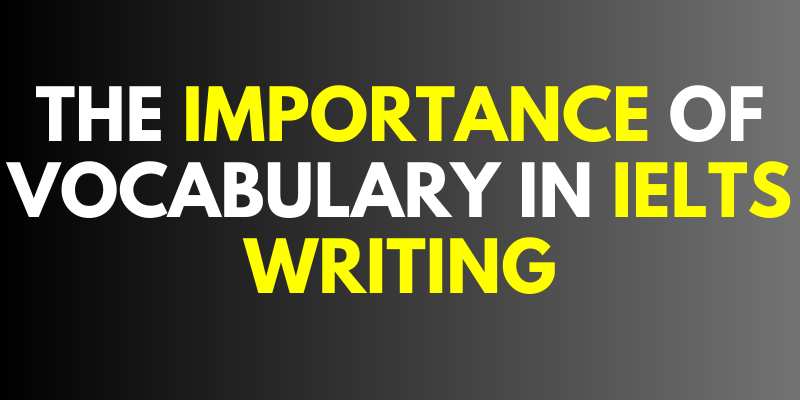
The International English Language Testing System (IELTS) is a complete inspection of an individual’s English language skills. It is a widely recognized and respected test used worldwide for various purposes such as academic study, immigration, and employment opportunities. One of the essential components of the IELTS test is the writing section, which requires test-takers to demonstrate their ability to communicate effectively in written English. Vocabulary is one of the most critical aspects of success in the IELTS writing section. Consider enrolling in IELTS Coaching in Bangalore to enhance your vocabulary skills and boost your chances of success. In this blog, we will explore the importance of vocabulary in IELTS writing and how it can impact test-takers scores.
Importance of Vocabulary in IELTS:
- Task-Specific Vocabulary:
The use of task-specific vocabulary is one way that vocabulary is evaluated in the IELTS writing section. This relates to regularly used terms and phrases in academic words, such as “discourse,” “thesis,” and “hypothesis.” Test takers who correctly utilize these words in their work are more likely to get a better grade because they display an in-depth understanding of the academic conversation and its rules.
- Collocation:
The way words are regularly used together in English is referred to as collocation. We say “make a decision” rather than ” perform a decision” and “take responsibility” rather than “have responsibility.” Test takers who correctly employ collocations in their work have a strong grasp of the subtleties of the English language and are more certain to obtain a better score as a consequence.
- Appropriate Vocabulary:
Students need to use a range of appropriate vocabulary for the topic and study. This means understanding common and academic words well and correctly using them in context. Using inappropriate or inaccurate vocabulary can positively impact scores, making the writing more apparent. By enrolling in IELTS Training in Marathahalli, students can gain access to experienced trainers who can provide expert guidance on vocabulary development, as well as personalized attention to help them identify their strengths and weaknesses.
- Learning Vocabulary in Context:
Practising vocabulary in context also helps test takers. This involves understanding terminology in the context of a specific subject or theme, such as “training” or “environmental issues.” Test takers can better comprehend the meaning and usage of terms and are more likely to recall them when it is time to write by studying vocabulary in context.
Conclusion:
Vocabulary is a critical component of success in the IELTS writing section. Test-takers who can use a range of appropriate vocabulary, including task-specific vocabulary and collocations, are more likely to achieve a higher score. Enrolling in the Best Foreign Language Institute in Bangalore can offer students access to various reading materials and learning resources to help them improve their vocabulary skills in context. Therefore, test-takers must develop vocabulary skills to perform their best in the IELTS writing section.